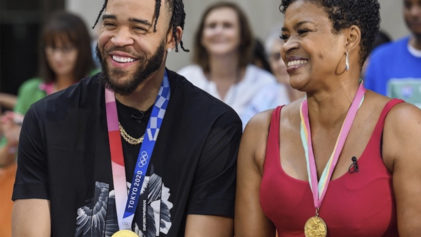This year’s Summer Olympics will provide a unique challenge for Muslim athletes competing in London, as the games are set to overlap with Ramadan. The Islamic holy month begins on July 20and lasts for 30 days, spanning the entire length of the Olympics, which run from July 27– August 12. There are no restrictions preventing athletes from competing, but as a part of Ramadan, Muslims are called upon to fast during daylight hours.
For those looking to make breakthrough performances, dietary restrictions can mean all the difference. Noor Al-Malki, who is a part of the first wave of females to represent the nation of Qatari in the Olympics, told the AP: “It will be difficult, but it is Ramadan,” al-Malki said. “You have to respect Ramadan. But I want to make a new national record. If there is a problem with that, I will not make Ramadan.”
Some 3,500 Muslims will be competing in London, and they will need to find their own ways to appease both their faith and competitive spirit. In Islam, there is no central authority comparable to the pope, so individuals will need to seek guidance within their own countries. Certain interpretations of the Koran allow for travelers to break the fast, which would allow athletes traveling to Europe for the games to maintain a more standard diet. The United Arab Emirates, known as one of the more conservative Muslim nations, allowed its soccer team to break fast, so long as they did not stay in the same place for more than four days.
Others maintain that competition and performance should not take precedence over fasting. “The words in Islam are clear. The Olympics are not a necessary reason to break one’s fast,” said Sheik Fawzi Zefzaf, a scholar at Al-Azhar, a premier institution for Sunni Muslims in Egypt.
There has been no word on what number of athletes have resolved to fast during the Olympics, but of the twelve interviewed by the AP, none have committed to doing so. “How do you want a machine to work without a fuel?” said Iraqi javelin thrower Ammar Mekki.


